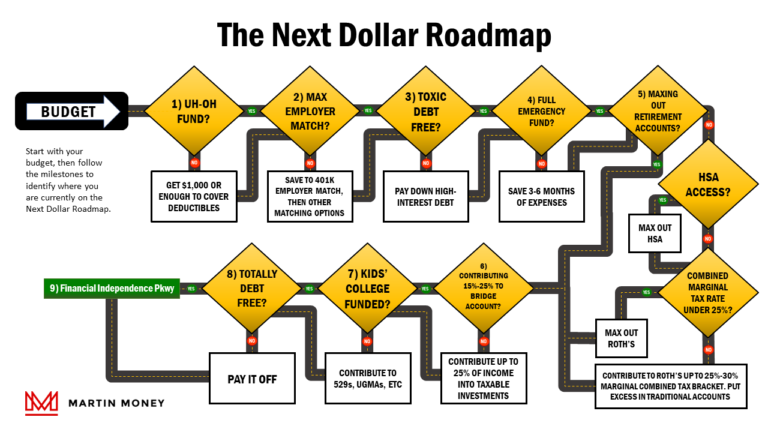Contributing to an HSA While Unemployed
Health Savings Accounts are arguably the most powerful tax-efficient saving vehicle.
They stand alone as the only account that allows savers to make tax-free contributions, earnings, and withdrawals, provided the money is used for a qualified medical expense.
With average individual medical expenses expected to exceed $350,000 after age 65, it’s not very difficult to understand why someone would want to open and utilize an HSA.
However, there are requirements to meet for eligibility and decisions to make about where and how to open the account.
We’ll start by walking through these requirements at a high level, then I’ll discuss the pros and cons of contributing to an HSA in three different ways:
- Through your employer
- Outside of your workplace
- When you’re not working anywhere
High-Level HSA Characteristics
HSAs were first introduced in 2003 and have taken some time to grow in popularity. Currently, around 72 million Americans are covered by HSAs, which is about 20% of the general population.
I’ve already touched on the big draw of HSAs. They allow account owners to make contributions and generate earnings in the account, tax free.
Earning potential is another component of HSAs that makes them appealing. You can invest your contributions to an HSA much like you would any other investment account.
This gives you the ability to tap into the power of compounding interest to help your account balance grow.
Furthermore, if withdrawals from the account are used for qualified medical expenses, then those are tax-free too.
That means the money coming through HSAs can potentially move through your hands without ever being taxed.
Also, if you turn out to be an awesome investor and the account outgrows your future needs for medical expenses, you can begin withdrawing money from the account penalty-free beginning at age 65.
You will owe taxes for these withdrawals after 65, but in that sense, HSAs don’t leave you any worse off than Traditional IRAs.
Regarding penalties, if you make withdrawals from your HSA before age 65 and the money isn’t used for a medical expense, you’ll owe income taxes and a 20% penalty on the withdrawal.
Additionally, to be eligible to make contributions to an HSA you must be enrolled in a high-deductible health plan.
As the name implies, these health insurance plans require you to carry a high deductible which places the burden for more of your first medical expenses each year on you.
The bad news is this means you’ll carry more risk that your medical costs will be higher than they would under a PPO, but the good news is HDHPs normally have much lower premiums.
Finally, there are annual contribution limits to HSAs. The limits for 2024 are in the table below:

Generally speaking, if you enjoy good health, HSAs are a more beneficial option than paying higher premiums for lower deductible health coverage without a saving and investing option.
Pros and Cons of Contributing Through Employer
I think I’ve presented a clear enough case for the benefits of HSAs, but there are several ways to open an account, each with its benefits and drawbacks.

One of the most beneficial aspects of contributing to an HSA through payroll deduction is that the amounts you direct to the account avoid Social Security and Medicare taxes. That’s a 7.65% savings that you would otherwise miss out on.
Also, if your employer makes contributions to an HSA on your behalf, you probably won’t be able to take advantage of that if you open your HSA outside of work.
Finally, there’s less to set up and manage if your employer has already taken care of most of that for you. This is a small win, but it’s a win nonetheless.
The major con of opening an HSA at work is that you are limited to the plan requirements and investment options that your employer has elected to provide.
Some of the more common and inconvenient aspects of employer plans that I’ve seen are requirements for a large cash balance in the account before you can begin investing or poor or limited investment options.
Pros and Cons of Contributing Outside of Work
If you don’t want to open a plan at work, you are free to open one anywhere a plan is offered assuming you are enrolled in a HDHP.

The pros and cons of opening a plan outside of work are almost the inverse of opening a plan through your employer.
You basically lose the benefits of payroll deduction and employer contributions but gain the freedom to manage your plan as you wish.
In case you’re wondering, yes, you can open multiple HSA plans as long as your total annual contributions doesn’t exceed the annual limit.
Many people actually make contributions to multiple plans, combining the benefits and limiting the drawbacks of each method to the extent of their own level of comfort.
Contributing if You’re Not Working
The third option I want to discuss is contributing to an HSA when you’re not working.
First of all, as we step into this, I want to point out that the pros and cons of contributing to an HSA when you’re not working aren’t really any different than contributing to a plan outside of work.
You’ll have the same access to whatever is available to the public but will miss out on the benefits of payroll deduction through an employer.
Truthfully, if you’re evaluating the wisdom of contributing to an HSA outside of an employer plan, your employment status matters much less than your age; or to be clearer, your employment status matters much less than whether or not you’re receiving Social Security and Medicare benefits.
As we’ve already mentioned, you must be enrolled in a high-deductible health plan to make contributions to an HSA. Medicare is not considered an HDHP.
However, there are a couple of ways to continue contributing to an HSA even after age 65:
- If you’re working beyond age 65 and you haven’t enrolled in Social Security or Medicare, then you can continue to contribute to an HSA.
- If you’re already enrolled in Medicare but your spouse is not and he or she is enrolled in an HDHP that also covers you, then your spouse can contribute to the HSA up to the upper annual limit for family coverage.
Also, keep in mind that you’ll need to carefully calculate your HSA contributions if you make them in the same year that you first enroll in Medicare. Your maximum contribution will have to be adjusted based on how much of the year your enrolled in an HDHP.
Finally, if you’re concerned that you’ll have to itemize your tax deductions in order to receive the tax-free benefits of HSA contributions, fear not. You do not have to itemize your taxes to deduct contributions to an HSA. See IRS publication 969 for more details.
Wrap Up
I do hope all of this information was helpful to you, but it’s all academic if you aren’t investing your HSA contributions.
Currently, only about 1 in 8 HSA account owners invests any of the money in their accounts.
That’s like saying only 1 in 8 Ferrari owners drive their cars fast once in a while. I won’t say there isn’t any point, but it certainly limits the potential.
If you have an HSA I implore you to invest the money in the account so you can maximize the harvest of tax-free benefits these unique accounts provide.







